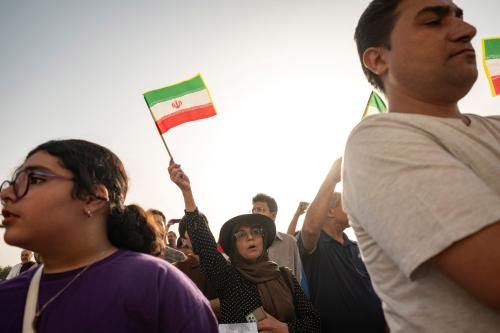In January 2006 most Shias (84%) believed their country was heading in the right direction. In our September poll, only 59% believed this, a 25-point drop. The number of Shias who think ousting Saddam Hussein was worth it has also dropped by 25 points (from 98% to 75%). What are the major factors behind this drop in Shia confidence?
Telhami: The Shias were very happy to see ouster of the Saddam Hussein regime. They knew they would be empowered as the majority, even though they also knew the United States overthrew Saddam for its own reasons. But as the scale of death and destruction has increased—as well as the lack of services, jobs, the unpredictability of life—it’s not surprising that Shias are less confident. Though most Shias are obviously still happy to see Saddam gone, the fact that even some Shia almost long for the days when he was in power tells you something about the kind of lives they are living today.
Hiltermann: The sharp increase in sectarian violence comes in the wake of the Samarra shrine bombing in February 2006. This underlined the growing lawlessness and chaos. Many Iraqis that I know, who had remained guardedly optimistic before that, turned depressed over Iraq’s future. What people crave most is stability, and Saddam’s regime, for all its brutality, delivered that, and everyone knew that as long as you kept your mouths shut, things should normally be okay. By contrast, today, you may be attacked by anyone at anytime; violence is arbitrary and indiscriminate. There is nothing that people fear more, because of its unpredictability.
Related Article:
“Baghdad Shias Believe Killings May Increase Once U.S.-led Forces Depart but Large Majorities Still Support Withdrawal Within a Year,” WorldPublicOpinion.org (11/20/06)
Mary Speck, managing editor, World Public Opinion, conducted this interview.
The Brookings Institution is committed to quality, independence, and impact.
We are supported by a diverse array of funders. In line with our values and policies, each Brookings publication represents the sole views of its author(s).




Commentary
Analysis: 2006 Nationwide Survey of Iraqi Opinion
November 20, 2006